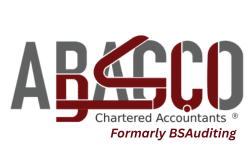It is essential to occasionally stand back to analyze actions or errors that can hinder or derail progress. All individuals can make mistakes, but some of them must be stopped at all costs.
Progress in internal auditing hardly comes immediately and is never ensured. It may take years to acquire the knowledge, skills, and abilities, and even then, the process of learning and developing will never truly stop. Yet the most meticulously crafted internal audit career will come crashing down in a moment because of a serious mistake.
The following are the 7 most common errors that are made by any organization while conducting the company audit:
- Publishing an erroneous report
It is incomprehensible why someone deliberately permits a mistake – significant or minor – in an internal audit study. Yet it can be just as damaging an error. A single, erroneous observation can be plagued forever, not just because of the mistake itself, but also because a retracted article is rarely forgotten. A retracted or revised study lingers, which acts as a clear warning of one mistake and the possibility that it will not be exceptional. Such erroneous reports tend to embarrass you in front of your clients. The ideal way to save yourself from this type of embarrassment is by hiring an audit firm in the UAE.
- Submitting incomplete or false wallpaper
You will not get detected if you “cheat” the working papers, but if – when – you are, the result will not be good. The intention of sending incomplete or incorrect worksheets is immoral, pure, and simple, and there is no room for it in internal auditing. You should presume that your boss would respond by porting through your previous worksheets, searching for related problems. Irrespective of what may be discovered, your work – and even your future – is potentially at risk.
- Losing the temper with a client
Often when audit clients are in trouble, they strike unfairly. It may seem normal to strike back, even though you believe like you are right, but it is never necessary to behave inappropriately and never productively to lose your coolness. Bear in mind that if you raise your voice during a client meeting, people will still recall the yelling match even after they’ve forgotten the explanation for the dispute.
- Auditing with an “agenda”
It’s a massive breach of integrity to carry out a conflict of interest investigation. Your credibility for being honest, objective auditing would be lost forever if even for a second, you seem to be trying to get others, or exonerate a close friend, regardless of guilt or innocence. It doesn’t matter whether the conflict of interest is actual or perceived. It can be almost difficult to recover, even though you are permitted to remain in the internal audit department.
- Betraying a bond of confidentiality
There are some ways in which the information collected during the audit should never be used. If, for example, an analyst improperly shares information about a customer, trust between the two parties would be lost, and you would expect a word to pass quickly. If an auditor gains a reputation as a gossipmonger, the opportunity to participate in a candid dialogue with management would be considerable, if not entirely, reduced. Nobody invites an indiscreet internal investigator on a return tour.
- Violating company policies
Suppose the client suspects that the auditor is flouting the company’s rules. In that case, the auditor should not be disappointed if they lose persuasiveness when deciding on the client’s compliance with the regulation. It is not that auditors can never, under whatever conditions, make an exception to policies. Any exemption should be well-founded, and it should be uncommon. Much like the police can never be “above the rules.”
- Issuing internal audit reports that are petty or do not add value
The significance of auditing cannot be neglected, but there is no point in conducting a company audit if it is not up to the mark. Hence, it is crucial to make it effective and beneficial for the organization.
If you want to have a successful audit for your company, you must consult an audit firm in the UAE. Internal Auditors of BSA Auditing & Consultancy are masters of their game and possess all the expertise, discernment, and skills required to carry out a successful organizational audit.
Our qualified and diversified internal auditors in Dubai make a valuable resource to executive management and boards of directors in accomplishing overall goals and objectives, as well as in strengthening internal controls and organizational governance.
For more details or to schedule a meeting please call us at +97145707357 or send us an email at info@bsauditing.com.


